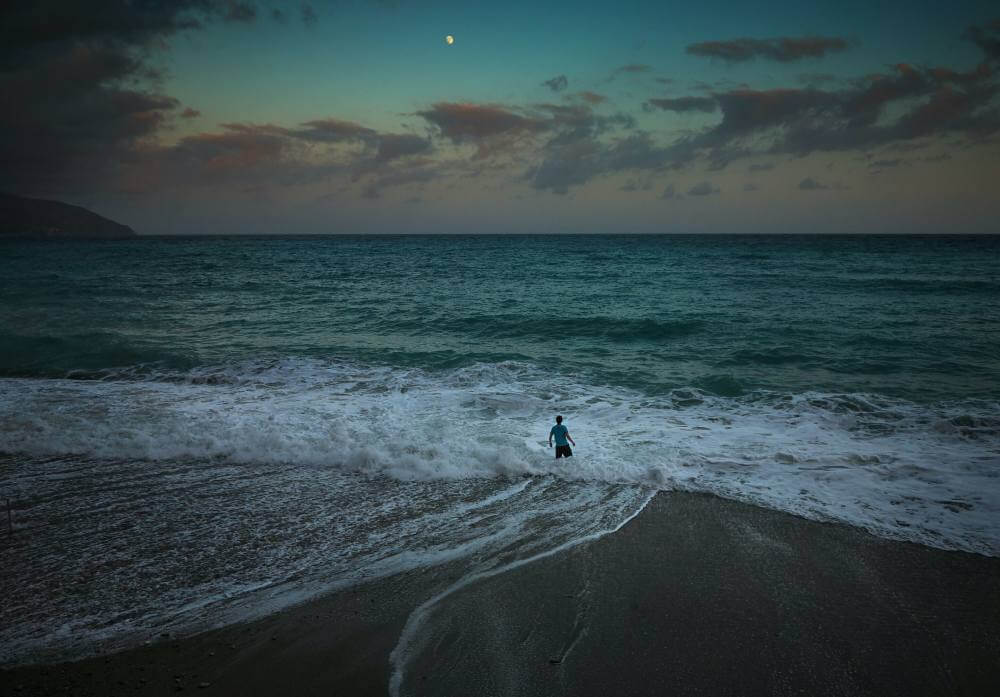Jonathan Quinn walked along a mostly deserted stretch of beach along the Baja Peninsula of Mexico – overwhelmed by the horrific and seemingly endless sight that stretched in front of him. The full October moon glinted off the bodies of thousands, maybe hundreds of thousands of fish writhing helplessly in the sand.
He knew that marine animals beaching themselves was a phenomenon that was fairly common, yet little understood by science. It was heartbreaking nonetheless. He remembered the starfish story he had heard as a boy. In the tale, a man was walking along a beach at night where massive numbers of starfish had beached themselves. One at a time he was picking them up and placing them back into the water. A stranger observed what he was doing and asked, “Why are you doing that? Look at how many there are, you can’t possibly make a difference. The man picked up another starfish and returned it to the ocean and said, “It made a difference to that one.”
Jonathan considered the story and the scene in front of him and thought, Maybe tonight, maybe right now, is why I heard that story all those years ago.
It has often been said that if you live long enough, you will eventually become a cynic. It some ways, this is true. Youthful idealism can easily give way to the painful lessons that experience has in store for every single one of us. But most people don’t want to be cynical, not really. While I will concede that many people seem to openly relish in their cynicism, negativity, and judgmentalism, it is, in most cases, born of fear and/or ignorance.
But there is one truth, one especially painful realization, that eventually gets seared into the brain of most everyone who is afforded a few decades of life….
Nobody cares about you excepting perhaps, your immediate family and precious few VERY close friends.
There, I said it – fight me. And this is exactly the kind of realization that if allowed, or if misunderstood, manufactures world-class cynics, misanthropes, and curmudgeons (been wanting to use the word curmudgeon for years, looks like today is the day 

Dale Carnegie devoted a major portion of his seminal classic, “How to Win Friends and Influence People” to this very point. He teaches that the most effective (in truth the only) way to create genuine rapport, comaraderie, and friendship with others is by encouraging them to talk about themselves – to speak about what interests them – to ask them questions that will allow them to shine. The reality of our interpersonal encounters, however, rarely goes like this. We typically babble on incessantly about ourselves, our stories, our rants, our stuff, then we wonder why the other person doesn’t think we are the be-all-end-all cat’s meow and why they aren’t longing to simply touch the hem of our garment. Because – they aren’t interested in us – not with anything approximating the interest they have in themselves anyway.
Once we reach the tipping point and tumble over the precipice – once we understand the agonizing truth and universality of this oh-so-bitter pill, our humanity can quite easily splinter into all sorts of people we never, ever wanted to be. We can become loathsome, even unto ourselves. But there are always layers to the onion, always larger truths lurking in the deeper, still water – truths that are obscured by all the turbulence on the surface.
But if we are willing to try and see through this trick of the light, what we find is quite miraculous….
Service to and compassion for others is the greatest single source of human happiness that exists.
Therein lies the lesson. If we collar it, we win – us, them, everyone – we ALL win. If we misconceive it however, or shut our eyes to it, we lose. And we just might lose the worst thing imaginable – ourselves. We can give ourselves over to a darkness from which we may never emerge. I can think of nothing more wasteful – or tragic.
Jonathan Quinn reached down, picked up the first silvery, panic-stricken fish and carried it back to the sea. As he came up the beach to retrieve another one he heard a voice,
“What are you doing?”
“I’m putting these poor fish back into the sea. I know I can’t help them all, but I can help the ones I can.”
The man smiled and said,
“You have a good heart, sir. But these fish are grunions. This is how they spawn. The females dig out a nest in the sand with their tails, lay their eggs, then the males fertilize them. When all that is done, and with the help of high-tide, they’ll all wriggle their way back into the ocean.”
Jonathan looked at the man, looked up at the resplendent full moon, and realized he had just learned about a lot more than fish.
Check out the podcast episode…
Check out the Happiness 2.0 Podcast – https://podcast.edwardgdunn.com/




